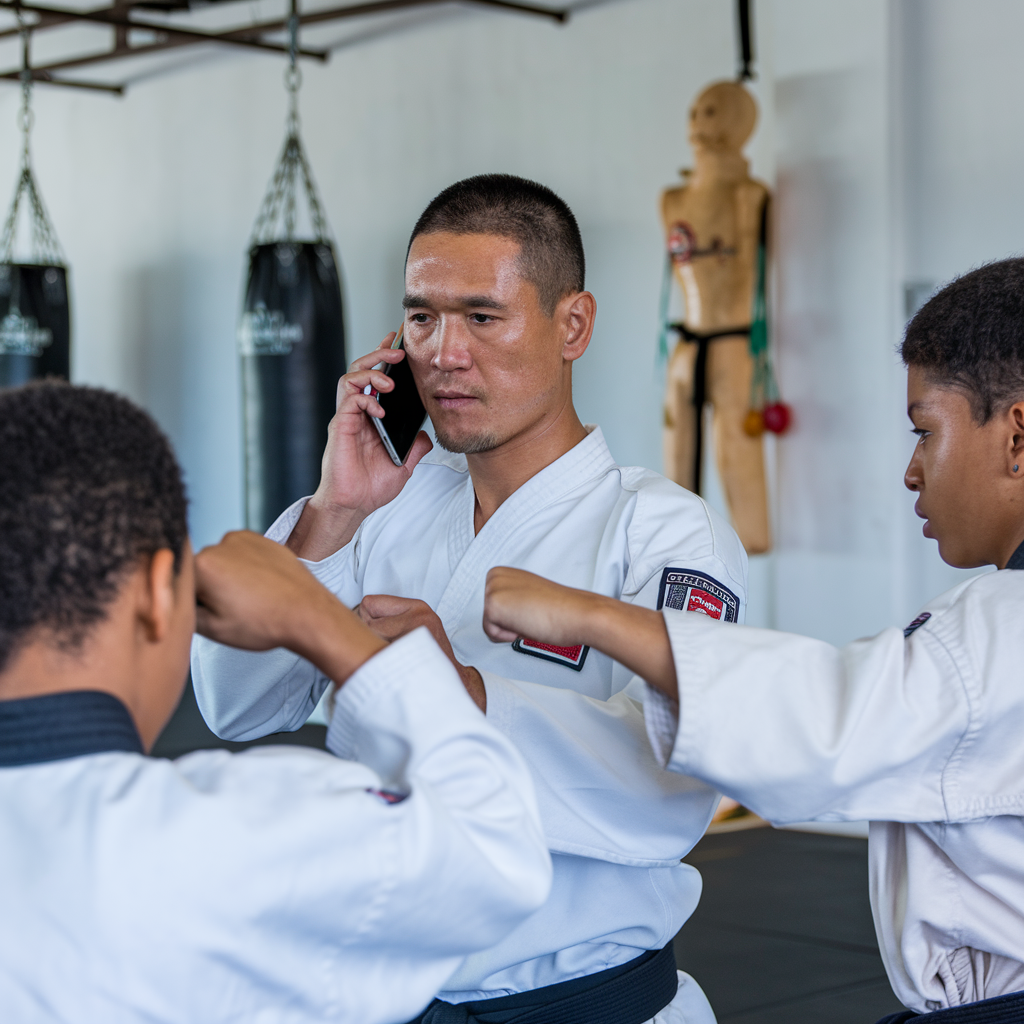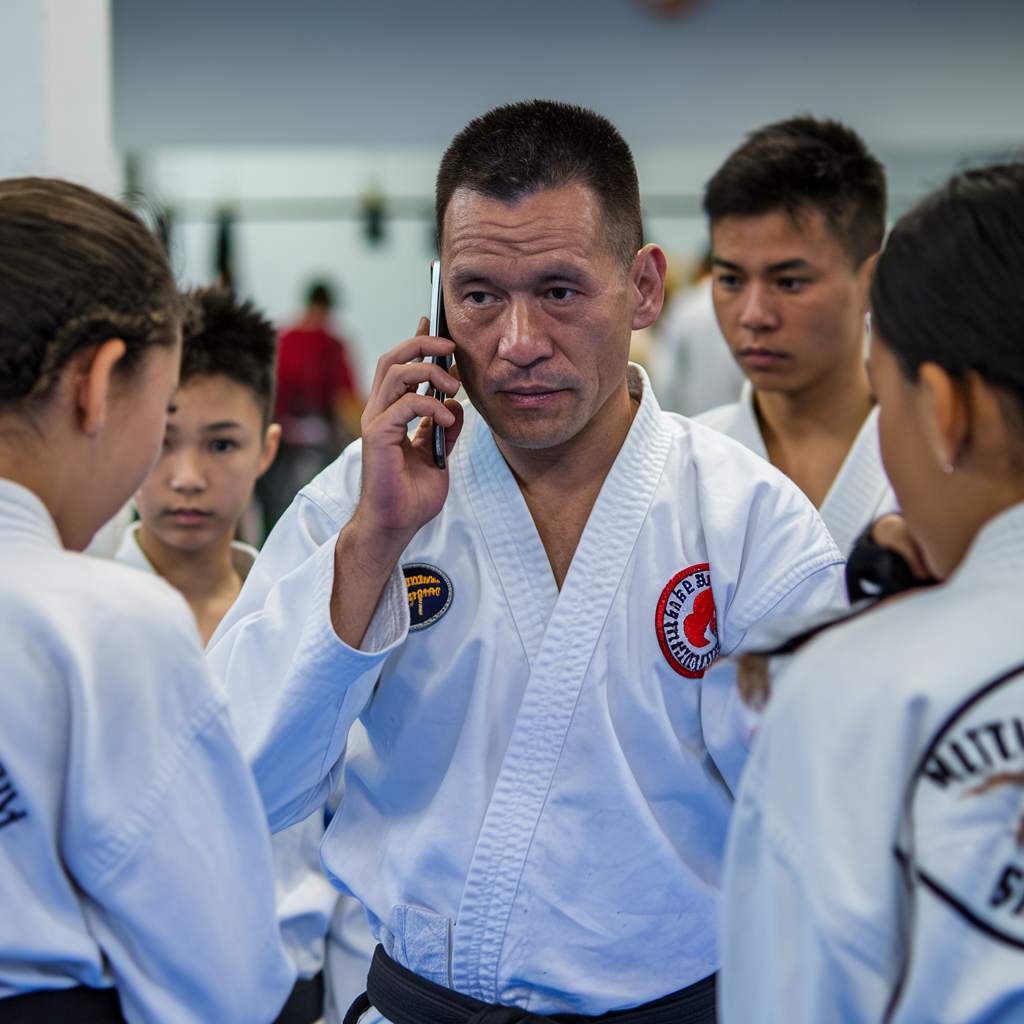
In an age where distractions are constant and stress levels are high, finding focus can feel like an uphill battle. Whether it’s juggling professional responsibilities, personal commitments, or digital distractions, maintaining clarity and discipline is no easy task. Surprisingly, one of the most effective ways to sharpen both the mind and body lies in an ancient practice—martial arts.
Martial arts are not just about self-defense or physical prowess. They represent a profound union of mental and physical discipline, teaching practitioners to develop laser-sharp focus, mental resilience, and bodily coordination. From the moment you step onto the mat, you engage in a practice that demands concentration, mindfulness, and a commitment to continuous improvement.
This article explores how martial arts strengthen both the mind and body, offering practical insights into how these disciplines enhance focus in everyday life.
1. The Mind-Body Connection in Martial Arts
At its core, martial arts are a harmonious blend of mental clarity and physical execution. Every punch, kick, and block requires not only muscle memory but also mental discipline. This constant interaction between mind and body fosters a unique kind of focus that transcends the training space.
A. Mental Focus Through Physical Precision
Each movement in martial arts requires precise coordination between the brain and body. Whether practicing a kata (a choreographed pattern of movements) in Karate or executing a throw in Judo, practitioners must be fully present to succeed. This level of focus trains the mind to filter out distractions and zero in on the task at hand.
Example:
A Brazilian Jiu-Jitsu (BJJ) practitioner engaged in a live roll (sparring session) must anticipate their opponent’s moves while planning their own. This demands acute mental focus and the ability to stay present under pressure.
Practical Application:
- Practice focusing on one task at a time in daily life.
- Engage in physical activities that challenge both mental and physical coordination.
- Use martial arts-inspired mindfulness to improve concentration in work and personal tasks.
2. Building Mental Toughness and Emotional Resilience
Martial arts push you beyond your comfort zone, both physically and mentally. This exposure to controlled adversity builds resilience—the ability to stay calm, focused, and effective in stressful situations.
A. Handling Pressure with Composure
In martial arts competitions or sparring, the pressure can be intense. To succeed, you must learn to regulate emotions and make quick, strategic decisions. Over time, this practice strengthens emotional control and mental fortitude.
Example:
A Muay Thai fighter who faces a skilled opponent must remain composed while absorbing strikes and finding openings to counter. This ability to maintain focus under duress carries over into real-life situations, such as public speaking or handling workplace stress.
Practical Application:
- Practice breathing techniques to stay calm during stressful moments.
- Frame challenging situations as opportunities for growth rather than obstacles.
- Use martial arts-inspired visualization techniques to prepare mentally for high-pressure tasks.
B. Learning from Failure and Setbacks
Martial arts teach that failure is not the end—it is a stepping stone toward improvement. Each mistake is a lesson, and each defeat is an opportunity to grow stronger. This mindset fosters resilience and perseverance in other areas of life.
Example:
A Taekwondo student who repeatedly fails a belt test learns the value of persistence. Through continued effort, they eventually succeed—a lesson applicable to overcoming personal and professional challenges.
Practical Application:
- Reframe failures as learning experiences.
- Develop a habit of reflecting on setbacks and identifying areas for growth.
- Apply the martial arts principle of “fall seven times, stand up eight” to everyday challenges.
3. Enhancing Cognitive Abilities Through Martial Arts

Research shows that physical exercise, especially activities that require coordination and strategy, enhances cognitive function. Martial arts are particularly effective at improving memory, problem-solving, and mental agility.
A. Memory and Pattern Recognition
Many martial arts require memorization of complex forms or sequences of movements. This regular mental exercise enhances memory and pattern recognition, improving both short-term recall and long-term cognitive function.
Example:
A Kung Fu practitioner memorizes detailed forms (or “kata”) that require intricate, precise sequences. This mental exercise strengthens the brain’s ability to retain and process information.
Practical Application:
- Engage in activities that require memorization and repetition to strengthen cognitive function.
- Practice learning new skills to keep your mind sharp and adaptable.
- Apply pattern recognition in work-related problem-solving or strategic planning.
B. Decision-Making Under Pressure
Sparring and live drills in martial arts force practitioners to make split-second decisions. This ability to think quickly and accurately under pressure is invaluable in everyday life.
Example:
In a Jiu-Jitsu match, a practitioner must decide in real-time whether to attack, defend, or escape based on their opponent’s position. This skill enhances the ability to make informed decisions quickly and effectively in high-stakes environments.
Practical Application:
- Practice making decisions under time constraints to improve mental agility.
- Use visualization techniques to prepare for critical decisions.
- Embrace controlled pressure situations to strengthen quick-thinking skills.
4. Cultivating Mindfulness and Present Awareness
One of the most profound lessons martial arts teach is the value of being present. Every movement demands full attention, encouraging mindfulness—a state of heightened awareness and focus.
A. Mindful Movement and Meditation
Many martial arts incorporate meditative practices, such as controlled breathing or focused visualization. These techniques improve mental clarity, reduce stress, and sharpen attention.
Example:
Aikido practitioners often begin and end class with a moment of silent meditation, grounding their focus and preparing the mind for disciplined practice.
Practical Application:
- Incorporate mindfulness practices such as breathing exercises into your daily routine.
- Use martial arts-inspired mindfulness to enhance focus during work or study.
- Practice grounding techniques to remain calm and present during stressful situations.
B. Strengthening the Mind-Body Link
Martial arts reinforce the idea that the mind and body are deeply connected. Physical discipline supports mental clarity, and mental focus enhances physical performance.
Example:
A Kyokushin Karate fighter trains in a state of focused intensity, using the mind to push through physical exhaustion. This mind-body connection enhances overall mental and physical well-being.
Practical Application:
- Engage in physical activities that challenge both body and mind.
- Use physical exercise to clear mental fog and improve focus.
- Develop rituals that align mental and physical focus, such as morning stretching or breathing exercises.
5. Applying Martial Arts Focus in Everyday Life
The focus developed through martial arts is not confined to the training hall—it can positively impact all areas of life.
A. In the Workplace
- Maintain focus during important tasks by eliminating distractions.
- Approach challenges with a calm, problem-solving mindset.
- Apply disciplined goal-setting to achieve long-term objectives.
B. In Relationships
- Practice active listening and present communication.
- Remain patient and composed during disagreements.
- Use emotional control to foster healthy, supportive connections.
C. In Personal Growth
- Set incremental goals and track your progress.
- Embrace lifelong learning and continuous self-improvement.
- Use martial arts-inspired discipline to maintain physical and mental health.
Conclusion: Focus is a Fight Worth Winning
Martial arts are more than physical combat—they are a powerful tool for sharpening the mind and body. Through disciplined practice, you develop mental clarity, emotional resilience, and the ability to focus under pressure.
Whether you’re facing a professional challenge, personal adversity, or simply seeking greater mindfulness, the principles of martial arts offer valuable lessons. By embracing these teachings, you can strengthen your focus, improve your cognitive abilities, and lead a more disciplined and purposeful life.
So, step onto the mat—not just to train your body, but to sharpen your mind. After all, in the fight for focus, martial arts offer an unbeatable edge.

